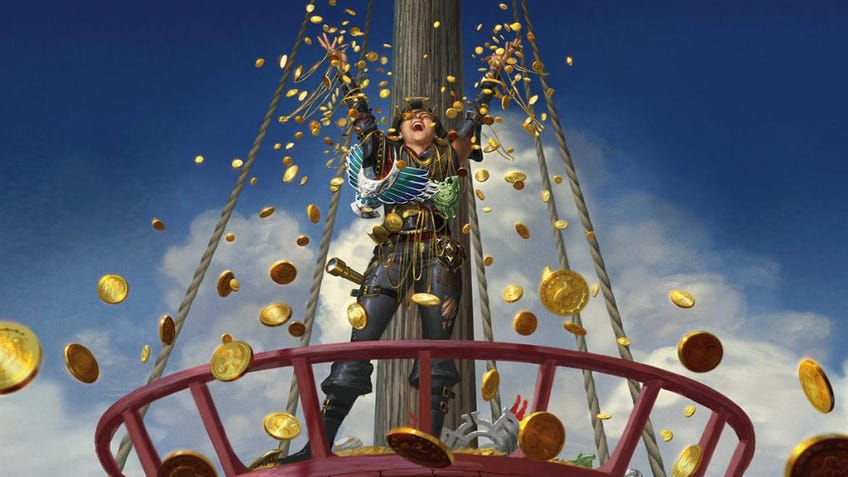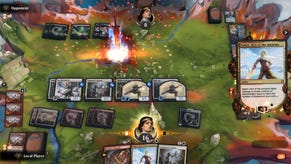Amid reprint discussion, MTG’s CEO says $999 30th anniversary box was “definitely the right call”
President and CEO Cynthia Williams claims Wizards of the Coast doesn’t participate in secondary markets.
During a December 8th webcasted seminar, Wizards of the Coast president and CEO Cynthia Williams combated speculation and made some bold claims. Among them was a refutation that reprinting Magic: The Gathering sets would tank the trading card game’s value and an insistence that the $999 30th Anniversary box was, in fact, a good decision.
Williams was joined on the call by Hasbro CEO Chris Cocks - the toy giant owns Wizards of the Coast and therefore both MTG and Dungeons & Dragons. The pair answered questions ostensibly drawn from investors via email and posed by an investor relations representative on the call.
When the representative broached the topic of reprinting sets, Williams responded in no uncertain terms: “There’s no evidence that MTG is over-printed,” she said on the call. “The sentiment that Magic needs to cut print runs to support prices is a misunderstanding of our business and customers.
She went on to say that any rise in the price of cards or sets soon after release meant Wizards of the Coast didn’t meet customer demand and likely upset their players. She’s not wrong - while most card sets are print-on-demand, meaning printers will keep churning out cardboard as long as players and stores are buying it, several smaller sets such as the Modern Masters and Remasters shot up in price due to scarcity in a matter of weeks.
Players learned to get in early or risk not playing certain sets at all. This practice became particularly stressful in the past year, where major set releases - what Wizards calls “tentpole sets” released at a fatiguing clip. Williams promised this scheduling anomaly, exacerbated by supply chain stress, would not plague MTG’s 2023 plans. The company apparently prefers two months between tentpole sets with smaller releases, such as Secret Lair drops, sprinkled in between.
Investors were also concerned that reprinting cards might build a permanent price ceiling on the secondary market, driving down the price of the more collectable (read: in-demand and rare) singles. Williams unequivocally stated that “we don’t participate in secondary market activity” but still explained that prerelease events and early sales often create an over-inflated market snapshot in the days before a set fully hits the market.

The first claim might be technically true - Wizards of the Coast doesn’t profit directly from the buying and selling of second-hand cards, but reprint decisions have absolutely been made in response to their community demanding some control over exorbitantly expensive format staples, most recently seen with Dockside Extortionist’s return in Double Masters earlier this year.
The ardent defence of reprinting cards was not without concessions. Williams claimed scaling back the stock of MTG’s 30th Anniversary set, the $999 box of booster packs full of non-legal reprints from the game’s first years, was “not a good short-term financial decision but definitely the right call or the long term health of the brand”. The company reportedly made that decision after listening to customer feedback
This claim is strange given the community response largely consisted of outcries, confusion and disgust that a celebratory product would be both prohibitively expensive and little more than glorified proxies. Fan criticism redoubled when the 30th Anniversary sets sold out within an hour of pre-orders going live, the experience apparently riddled with website instability, purchase problems and a complete non-response from the company in the days that followed.
Wizards of the Coast and Hasbro’s investors might be preoccupied with MTG reprinting and valuation thanks to the trading card game’s increasing turn towards collectibility. Secret Lairs continue to leverage FOMO (fear of missing out) to sell limited-run, alternate art cards, and Universes Beyond will take over a full set with Lord of the Rings-themed Tales from Middle-earth.
The source of their concern, rising inflation rates that many fear is headed towards full-on recession, will reportedly not touch Magic: The Gathering. Cocks said Wizards of the Coast will not raise the price of booster packs or most of its other core products in the foreseeable future as a response to any economic pressures.









